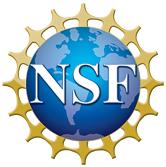The interaction between computer processors and software is governed by an Instruction Set Architecture (ISA). The ISA is large and complex, too large for a person to understand and reason about all the interactions between different parts completely. [My] research is about detecting security vulnerabilities that exist in the ISA. The hypothesis of this research is that it is possible to home in on a relatively small subset of the ISA in which these types of errors are likely to occur. The research will include developing a practical methodology for discovering for which instructions vulnerabilities are most likely to occur, and then using that information to build tools to detect and correct security-critical errors in the ISA.– Cynthia Sturton on her project, Detecting Security Vulnerabilities in Instruction Set Architectures, from UNC Chapel Hill
My project focuses on improving computer security technologies for journalist-source communications. Improved digital communications technologies have provided opportunities for journalism, but security weaknesses in these technologies have put journalists and their sources increasingly at risk. As a result, journalists are often cited as potential beneficiaries of computer security technologies — however, their practices and mental models have not been deeply studied by the academic computer security community. My work aims to develop such an understanding through in-depth interviews and surveys of journalists, and to use these findings to inform the design and development of new computer security techniques or tools to help protect journalist-source communications (e.g., to protect communications metadata or to bootstrap secure communications at first contact).–Franziska Roesner on her project, Improving Computer Security Technologies through Analyzing Security Needs and Practices of Journalists, from the University of Washington
- Clarification of what constitutes an eligible position relative to visiting faculty positions, postdocs, etc.
- Clarification of what prior awards disqualify (only government awards, not those from industry, universities, private foundations, etc).
- Eligibility is limited to 5 years after receiving a PhD.
- Eligibility is determined as of the deadline, not as of the date of submission.
The webinar will go over this in more detail. Submissions are due on September 30 at 5pm proposers local time.
For more information, please see the solicitation and the FAQs.










